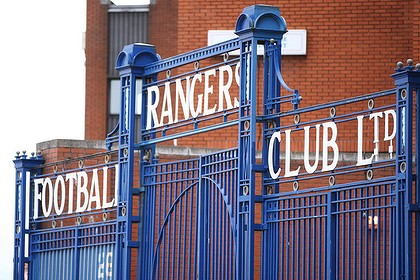Scottish champions Rangers’ crippling financial problems intensified when an Edinburgh court announced that the club intended to enter administration.
The Glasgow giants have lodged papers with the Court of Session in Edinburgh notifying an intention to declare an administrator.

The Ibrox club were forced to sell star striker Nikica Jelavic to English side Everton on last month’s transfer deadline day in a bid to bring in some cash and owner Craig Whyte said on February 5: “This has the potential to be the toughest few weeks in the club’s history.
“I wouldn’t say crisis is the right word. Not at the moment. But we’re certainly in the toughest time in the club’s history.”
Rangers and arch-Glasgow rivals Celtic are Scotland’s two most successful clubs, both in terms of trophies won and the number of supporters they attract.
Although the process of entering administration can lead to a business going out of existence, such is Rangers’ standing that the prospect of life without them is unthinkable to many within Scottish football.
In recent years the ‘Old Firm’, whose matches against one another are the biggest draw in Scottish football, have pulled even further away from the rest of the domestic top-flight.
Celtic currently lead the Scottish Premier League by four points from Rangers, who are a huge 19 in front of third-placed Motherwell.
It has long been speculated Rangers would enter administration, which if confirmed would result in a 10-point penalty from the SPL and all but end their title hopes this term.
The case brought by Her Majesty’s Revenue and Customs (HMRC) centres around the use of employee benefits trusts (EBTs) which were in place before Whyte took over from Sir David Murray in May.
Whyte bought Murray’s shares for £1 and pledged to pay off the club’s £18 million debt to Lloyds Banking Group.
But last month’s transfer deadline day saw Whyte admitting his Rangers regime had borrowed more than £20 million in lieu of season ticket sales.
And January also saw trading in Rangers shares suspended after they submitted unaudited accounts.
At that time Rangers also said Whyte was “disqualified to act as a director of Vital UK Limited in 2000 for a period of seven years”, prompting the Scottish Football Association to seek “clarification” about his position.
Monday’s announcement of impending administration came just hours after Celtic announced a pre-tax profit of about £180,000, having shaved £2 million off their debt in the second half of last year to leave it at £7 million.
Meanwhile, struggling English second-tier club Portsmouth are facing a 10-point deduction after announcing their intention to seek administration.
It would be the second time in as many years the south coast club has gone into administration.
Pompey face a winding-up hearing next week over an unpaid tax bill and have not been able to pay their players and staff for January.
by Buford Balony

